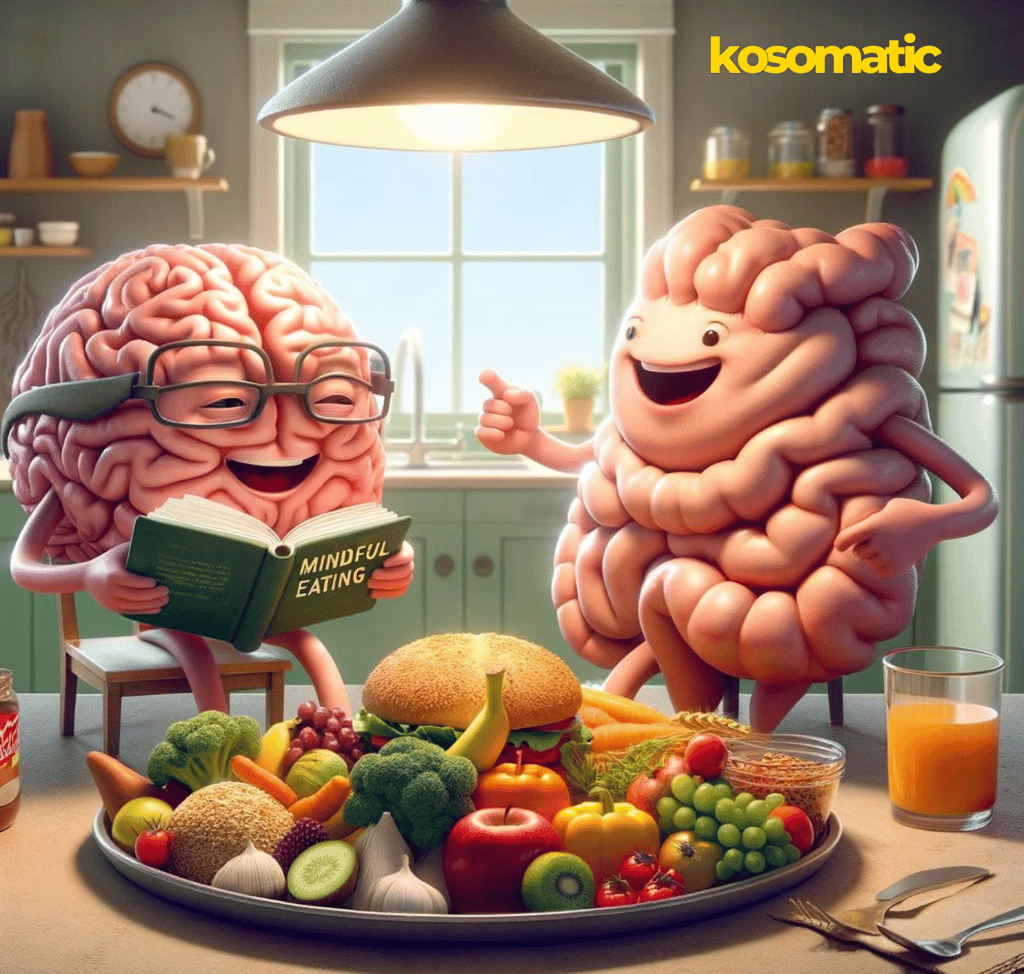They're Talking About You!
The Non-Stop Nattering Between Belly & Bonce
NUTRITIONMICROBIOMEHEALTH


What you're eating can impact your mood, brain health, and even your thoughts. Your gut and brain are in constant communication thanks to the microbiome-gut-brain axis — the network of the gastrointestinal tract, brain, and gut microbiome. This gut microbiome — the trillions of bacteria, fungi, and other microbes living in your gut — weighs more than its conversation partner (your brain) at around 2kg! I couldn't believe it either. Effectively, they're gossiping about what you've been feeding them! Here are some top tips to keep the conversation kind and improve overall happiness and health.
Variety is the Spice of Life (and the Key to Gut Health)
Did you know aiming for 30 different plant foods each week can transform your gut health? Even coffee, black pepper and dark chocolate count, so it's not as difficult to hit that number as you might think. Each colour, each variety, brings its own combination of fibre and polyphenols that our gut microbes absolutely adore. The Mediterranean diet, rich in diversity and plant-based goodness, stands as a testament to this, showing us that "good" gut bacteria thrive with the right fuel.
The Power of Plants
Sides of fruits and vegetables are really the main course in terms of your gut's health. Foods like berries, cocoa, coffee and tea, spices, nuts and seeds, red wine, olives, beans, vegetables, and soy are rich in polyphenols, which support "good" bacteria and keep the "bad" bacteria at bay.
Nuts and Seeds
Nuts and seeds aren't just for the bird table; they're packed with fibre, polyphenols, and omega-3 fatty acids. Incorporating foods like almonds, walnuts, and flax seeds into your diet not only diversifies your gut microbiome, but also supports heart health and stabilises your blood sugar.
Legumes and Whole Grains
Chickpeas, lentils, and oats bring high levels of dietary fibre and prebiotics, feeding the "good" bacteria and promoting a stable, happy gut microbiome. They're not just good for your gut; they're great for your heart and overall health too.
Prebiotics and Probiotics
These two play a pivotal role in nourishing and diversifying your gut bacteria. More diversity means better function and resilience. Probiotics are the bugs that live in your gut. Prebiotics are what they feed on. Foods rich in prebiotics, like bananas, garlic, and barley, provide a feast for probiotics from natural yoghurt, kefir, and kombucha, creating a gut environment that's like a vibrant, bustling city of health.
Go for Gut Glory
Ultra-processed foods often contain lots of added sugar, fat, and salt as well as many other chemicals, preservatives, and emulsifiers, and are linked to metabolic changes and poorer health. Cutting down on ultra-processed foods and sugars, getting ample sleep, exercising, and managing stress all contribute to a gut microbiome that's as diverse and vibrant as a coral reef, resulting in a healthy gut ecosystem that supports the entire body's health, from brain function to immune defence.
Coaching @ kosomatic
The 'everything is connected' philosophy is at the heart of everything I'm doing at kosomatic. The link between digestive and mental health cannot be ignored. A diversity of foods, exercise, meditation and mindful practices, leads to a more resilient self and stress-free, joyful living. Get in touch to find out more about Deep Heath Holistic Coaching.
